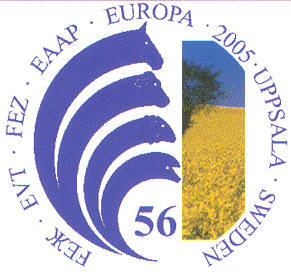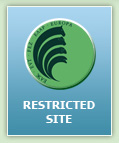Important Notice
For more information about the EAAP Researchers' database, please browse here.
This page has been
visited
 times
times
since 13 Sept. 2012
Date last up-dating:
13/09/2012
Feed Systems Proceedings

Workshop "Harmonization of Feed Evaluation Systems"
Uppsala, 4th June 2005 - EAAP Annual Meeting
Background
Feed evaluation is essential for all kinds of animal production to assure an optimal nutrient supply. This requires appropriate analytical methods and a feed evaluation system which makes it possible to define the optimal composition of the complete diets in relation to the actual requirements of the animal. This is not only essential for the production economy and efficiency, but has also impact on animal welfare and environmental consequences of surplus nutrients.
The science of feed evaluation has been under development during more than a century. Nevertheless, present feed evaluation systems are still largely influenced by the classical characterisation of feedstuffs based on the Weende analyses from the 1880's. Furthermore, with respect to energy, the systems in use cover the whole range from digestible to net energy. More recently, substrate based feed evaluation systems have been suggested.
Traditionally, feed evaluation systems have been developed within national boarders. However, with more limited resources available for research and development within this area there are obvious advantages in harmonising the feed evaluation systems in use. This may stimulate research co-operation between countries, as well as the exchange of methodology and ideas between scientists active in this area of research. A harmonisation of feed evaluation systems in Europe may also facilitate the development in the feed industry and may be beneficial for trade.
Aim of the Workshop
The aim of the workshop is to exchange ideas about current feed evaluation systems in use or in progress and to initiate a discussion regarding the possibilities to harmonise major elements of the systems. The workshop will contain common parts including all participants in combination with species oriented group discussions, where the participants, depending on their major interest, can focus on issues related to feed evaluation in ruminants, pigs or horses

